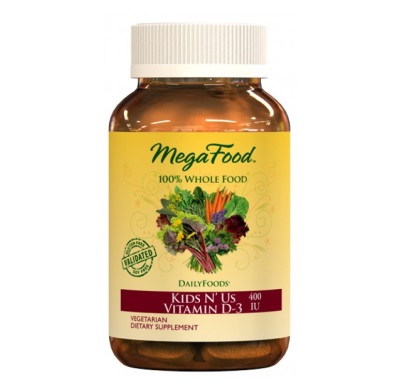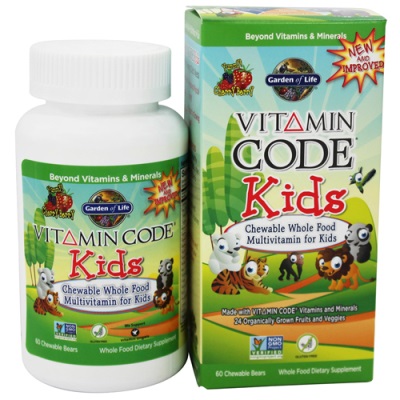Carefully! Chemical vitamins do harm, not good!
This information will warn you against purchasing and consuming synthetic vitamins - they are harmful and lead to new diseases.
The basic substances necessary for the body to function have now been found, isolated, identified, synthesized in laboratories and put into mass production.
On the shelves of pharmacies, health stores and in the assortment of MLM companies, in contrast to natural ones, synthesized vitamins, mineral complexes and others chemicals domestic and imported products are presented in a huge assortment.
But do we know everything about their effects on the body?
Let me present the results of some studies that were carried out in last years.
For a long time it was believed that vitamins obtained synthetically could replace the natural ones found in herbs, fruits and vegetables.
In the West, these ideas changed back in 1994, when comparative studies were conducted in Finland to find out how much synthetic vitamins protect a person from cancer.
Two groups of male smokers were taken.
One group was prescribed synthetic antioxidants for 6 years:
vitamin E and beta carotene.
The second group did not receive these vitamins.
Doctors assumed that there would be fewer diseases in the first group.
The results surprised not only doctors.
It turned out that in the first group, while taking chemical vitamins, the disease increased on 18 %!
Later, after laboratory research, scientists found out the reason for this result:
due to their inferiority, synthetic vitamins are absorbed on average just on 1-5 %,
a small part is excreted in the urine, and the entire remaining “tail” settles in the liver, kidneys, joints, blood vessels, forming what we used to call slags.
It is this fact that leads to diseases.
Vitamin E. The following experiment was carried out with him.
The experiment involved 18,300 patients and was planned to end in 1998. But already in 1996 the tests had to be stopped, because in the group of subjects who took synthetic vitamin E and beta-carotene cancer cases increased by 28 %
, and mortality - by 17 %
compared to the control group.
The director of the Institute of Oncological Research at a press conference on January 19, 1996, said, in addition, that in the group that took synthetic vitamin E and beta-carotene The number of heart attacks and strokes has increased.
Here's to your health!
Synthetic Vitamin C for a long time considered the most harmless
ascorbic acid
They even sold it to children without a prescription. It was believed that excess vitamin was excreted from the body in urine.
But in February 2000, the results of another experiment were published.
A professor at the University of Southern California, Dwyer suggested that 573 volunteers take 500 mg of synthetic vitamin C for 18 months.
At the end of the period it was revealed narrowing of cervical blood vessels. Taper speed increased by 3.5 times! This led to cardiovascular diseases.
It became clear that synthetic vitamins and food additives are fraught with real danger, and they cannot be taken uncontrollably.
Research results from 1994, 1996, 2000...
So why still Do doctors continue to prescribe synthetic vitamins for children and pregnant women?!
Why is it so difficult for inquisitive doctors to find modern scientific information in the field of nutrition?
The answer to these questions is:
Because the production of synthetic vitamins is carried out by pharmaceutical giants, who sponsor many medical periodicals and are not interested in reducing their income.
So what exactly makes synthetic vitamins harmful and leading to new diseases?
Scientists have found new round research and found at least two reasons for danger synthetic vitamins.
1. Primitive synthesized copy
Looks like it's all about chemistry: antioxidants in composition of vegetables and fruits work, and the same substances from a test tube - No
. Biochemists are well aware of similar cases when alive molecules behave differently than their synthetic counterparts.
This is often associated with isomerism, a phenomenon in which identical molecules have different arrangements of atoms in space. Here we can recall the so-called trans fats, which behave differently than natural fats with the same molecular composition, or the flavor enhancer monosodium glutamate, widely used in the food industry. It also exists in the form of two isomers: alive glutamate from natural sources differs from synthetic, which accumulates and provokes allergic reactions body. Examples can be continued:
example 1: Natural Vitamin C consists of seven isomers of ascorbic acid, which are in the finest bonds with each other. These connections cannot be produced artificially.
And in synthetic vitamins, in Vitrum, Centrum, Alphabets, etc. it is present in the composition only one isomer out of seven. The remaining six are not synthesized and are simply not present in synthetic vitamins.
example 2: IN synthesized vitamin E present only one out of eight tocopherols.
Artificially synthesizing all vitamin isomers is a very complex and expensive process, and pharmaceutical companies are not interested in additional high costs,
therefore, synthetic vitamins do harm, not benefit.
2. Lack of natural phytocomponents
In addition to substances useful for human body, plants contain thousands more substances, which are collectively called “phytocomponents”. Without them, pure vitamins will have a detrimental effect on the body.
Phytocomponents are found only in products made from plants; they are not found in synthetic products.

live vitamins
For example, vitamin C in nature never appears as pure ascorbic acid. In plants, it is always accompanied by bioflavonoids and many compounds, which not all have yet been synthesized.
In short, living vitamins in fruits and vegetables are always “contaminated” with a mass of accompanying substances, which often play a beneficial role. But pure chemical vitamins lack these properties.
Inorganic elements of natural origin - calcium, phosphorus, magnesium, sodium, potassium, iron, fluorine, chromium, copper, iodine, manganese, molybdenum, selenium, zinc and others are found in the soil. From there, plants extract them with the help of fulvates during their life processes and process them into organic compounds.
Neither animals nor humans have this unique natural mechanism, so food components are best taken in the form in which they occur in plants.
This explains why refined foods - vegetable oil, flour, sugar, rice - they often bring more harm than good.
As it were, Scientific research in these directions may present us with a lot of surprises in the coming years. And not all of them will be pleasant.
It is optimal to use the whole complex of substances, located in plants, and not individual isolated components.
This approach allows us to strengthen beneficial features raw materials, avoid overdose, avoid side effects and allergic reactions.
It follows that it is not a separate vitamin that needs to be introduced into the body, but its complex with all the elements that accompany it in nature.
Synthetic compounds, even carefully selected ones, always remain a rather primitive copy of what nature created. And since our body consists exclusively of organic matter, by introducing synthetic drugs into it, we grossly interfere with its natural structure, causing irreversible changes in the vital functions and organs of digestion, respiration, hematopoiesis, and excretion. Moreover, it is almost impossible to correctly determine the dose for artificial vitamins and microelements. The wrong dosage leads to even more negative consequences than the health problems themselves that they want to overcome with the help of these drugs.
It follows that Synthetic vitamins should not be taken under almost any circumstances.
Excess of synthetic vitamins dangerous for good health.
Not many buyers realize that excessive consumption of vitamins not only will not help with infectious diseases, but it can also shorten your life.
This conclusion was reached by a team of scientists from the Copenhagen University Hospital, which studied 250 thousand patients constantly taking certain groups of synthetic vitamins: beta-carotene, vitamins A, E, C and selenium.
The results are stunning:
- chemical vitamin A increased the risk of mortality by 16%,
- vitamin E- on 4%,
- beta carotene- on 7%.
According to Danish scientists, synthetic vitamins reduce the body's ability to independently fight infections.
Scientists agree on one thing: they can cause harm only synthetic vitamins, this does not apply to natural antioxidants found in fruits, vegetables and other foods.
According to experts, a preventive course of taking synthetic vitamin complexes can be performed no more than twice a year under the supervision of a doctor.
Sold around the world every day a large number of synthesized vitamin complexes and vitamin supplements.
Sociologists believe that almost a fifth of Europeans and Americans constantly take these drugs.
Doctors prescribe vitamins for the weakened, pregnant, sick, and children.
Meanwhile, tablets with petrochemical multivitamins do not protect us from diseases, but increase the risk of developing certain malignant tumors.
This sensational information appeared in one of the issues of The Lancet, the most influential scientific and medical journal in the world.
But advertising and propaganda have done their job - many start their day with a pill containing synthetic vitamins and minerals.
And this behavior, unfortunately, is welcomed by scientists.
The official position, repeatedly expressed by specialists from the Research Institute of Nutrition Russian Academy medical sciences, is that our compatriots do not have enough vitamins, and they need to be consumed not in courses, 2-3 times a year, but almost constantly. It would be good if the recommendations emphasized that we are talking about vitamins of natural origin!
It is almost impossible to find a specialist in Russia who would openly oppose such prophylactic administration of vitamins from a test tube. Meanwhile, in recent years, serious scientific studies have repeatedly appeared abroad in which the benefits of synthesized multivitamins have been seriously questioned.
And what’s interesting: in Russia, none of these studies received much publicity either in the scientific press or in the public.
Commercial use of synthesized vitamins continues.
Manufacturers do not conduct serious studies proving their effectiveness and safety. Unlike drugs, vitamins are considered safe and useful a priori.
Every mother has heard about the importance of vitamin compounds and minerals for the health, well-being and growth of the child. And since the topic of naturalness of the food consumed by children is very relevant these days, I want to give children only natural vitamins. What should children’s diet be like to get all natural vitamins and is it worth taking pharmaceutical complexes?

What vitamins do children need and where can they get them?
The human body is unable to produce most vitamins, so such substances must enter our body daily, and this is especially important in childhood. AND All doctors call food the best source of vitamins. They should be the basis of all vitamin compounds that enter the child’s body. They contain all vitamins in their natural form, which promotes their better absorption and optimal absorption.
To ensure that your child gets enough vitamins from the daily menu, he should be given:
- Cereal dishes and bread.
- Fermented milk products, cheeses and milk.
- Lean meat and offal.
- Eggs.
- Butter.
- Beets, cabbage, green salad, tomatoes and other vegetables.
- Apples, citrus fruits, kiwi, persimmons, pears and other fruits.
- Strawberries, cranberries, raspberries and other berries.
- Vegetable oils, seeds and different types nuts
- Salmon, sardines, mackerel and other fish, as well as seafood.
 To avoid hypovitaminosis, the baby’s menu should be complete and balanced
To avoid hypovitaminosis, the baby’s menu should be complete and balanced
Why natural vitamins cannot be replaced with synthetic ones
Vitamin and mineral compounds present in food products are absorbed much better than similar substances created artificially. That is why mothers who are worried about the intake of vitamins into the body of their daughter or son are first of all advised to pay closer attention to the children's menu.
If you prepare high-quality foods for your child with optimal heat treatment, all the natural vitamins from them will support his health, and synthetic additives will not be needed.
 Minimal heat treatment allows you to preserve vitamins in products
Minimal heat treatment allows you to preserve vitamins in products
Should vitamin supplements contain natural vitamins?
Most multivitamin complexes on sale these days contain synthetic components. However, there are also drugs whose composition is completely natural. An example of such vitamins would be supplements from the company Megafood, which produces natural complex vitamins in a large assortment.
For children over five years old, you can use the following complexes from this manufacturer:
- Kid's One Daily (tablets),

- Kids Daily Multi (powder),

- Kid's B Complex (tablets).

You can purchase such vitamins at the Iherb store. They are attractive due to their completely natural composition, since the vitamin compounds in such supplements are obtained from fresh foods - carrots, oranges, yeast, brown rice, broccoli and others.
These children's complexes do not contain any synthetic additives, GMOs, gluten or soy. The child can swallow or chew the tablets, and the powder form can be conveniently mixed with any drink, since such vitamins do not have flavorings or additives.
Another option for natural vitamins for children is the complex Vitamin Code Kids by Garden of Life. This supplement is cherry chewable tablets “bear cubs”, which contain organic vegetables and fruits, as well as probiotics (lactobacillus and saccharomycetes).
This drug does not include synthetic dyes, GMOs, dairy products, preservatives, gluten and other substances that may pose a danger to the child’s body.
The complex supports immune system children, gastrointestinal health, eyes, bones, and also provides energy for mental and physical activity. It is recommended for children over 4 years old.

Remember that according to most pediatricians balanced nutrition enough to provide for a child essential vitamins. For more information about this, see Dr. Komarovsky’s program.
Question:
We often come across this: “I took vitamins, but they don’t mean anything! There’s no effect”
How can we explain that the effect of taking vitamins is not at all the same as that of painkillers? I took it and immediately felt that the vitamins work at the cellular level and if, for example, a young person is not particularly worried about his health, then the effect may not be felt immediately, but this does not mean that they do not work, it’s just that the body does not work against the background of a deficiency of elements, but we have everything that it needs and, therefore, will last much longer. How important are vitamins for the body? And if you don’t take them, then what vitamins can the body “create” itself and under what conditions?
Answer:
How important are vitamins for the body?
Everyone determines for themselves how healthy they want to be! Chemical composition The body and the biochemical reactions of creation and destruction occurring in it are the same for almost all people (the differences are insignificant for different ethnic groups and places of residence). But the synthesis and destruction of vitamins, enzymes, hormones... is the basis of the life of every person, without exception! The only question is in our head - do I want to know about it or not, do I believe in the need to help my body or don’t believe it, am I ready or not ready to enrich my body with minerals, vitamins, microelements, proteins - that is, to support my metabolism as much as possible whether I’m saving on my health or not.
As a result, we all have different health, corresponding appearance whether we maintain the integrity of our body or not! The truism: “Our health is in our hands” cannot be disputed. The work of a healthy body is invisible and it seems that it will always be this way, but in fact, when a deficiency of any element occurs, gradually, like a chain reaction, a failure occurs at all stages of metabolism and is first expressed by a functional failure of one of the body systems, and subsequently results in a disease of some organ “as if suddenly,” or first a disease of some organ, which in turn leads to disruption of the body’s functioning. As if suddenly hypothyroidism, although up to a certain point: “I have never been “bothered” by the thyroid gland ...” - the diet contains little trace element - iodine and, by the way, have very pronounced properties (we are talking about natural forms (in the capsule there is a mixture of tocopherols d-alfa-tocoferol, d-beta-tocoferol, d-gamma-tocoferol from environmentally friendly, high-quality plant raw materials) and a prolonged form, enriched with lemon bioflavonoids, hesperidin, routine (vitamin P), rosehip and Barbados cherry concentrates).
And since the thyroid gland is the conductor of the entire endocrine system of the body, accordingly, disruptions will occur in all internal secretion organs, somewhere pronounced, somewhere they will be compensated and go unnoticed.
How will this manifest itself? Nutritional (dietary) lack of iodine and antioxidants can lead to difficulty losing excess weight,  to a decrease in visual acuity, to impairment menstrual cycle, to dry and brittle hair and nails, to a tendency to constipation, to an obsessive constant feeling of chilliness, to rapid fatigue, to a slow reaction and adaptation to the outside world.
to a decrease in visual acuity, to impairment menstrual cycle, to dry and brittle hair and nails, to a tendency to constipation, to an obsessive constant feeling of chilliness, to rapid fatigue, to a slow reaction and adaptation to the outside world.
“As if suddenly” bleeding gums - large doses of long-acting vitamin C and coenzyme Q 10 (ubiquinone) urgently need to be added to the diet.
“As if all of a sudden” hair is falling out more than usual; there is not enough vitamin C, calcium, or protein in the diet.
“As if suddenly” always has a cumulative effect!
Of course, you need to carefully choose vitamins and foods. If we're talking about about vitamins for family use, then they should have natural, and not chemical origin, you should pay attention to the manufacturing technology, the standards that the manufacturer adheres to, the source of raw materials for the production of vitamin-mineral complexes, the dosage of the active substance, and not just a list of what is in the capsule or tablet.
In the recent past (1912), the Polish scientist Casimir Funk was the first to propose the name vitamin, based on the Latin “vita” - “life”. And as history shows, vitamins really save lives, or rather thousands of lives! It was vitamins and vitamin-like substances isolated from natural raw materials that were studied, their effectiveness was proven, and thanks to their use, many diseases and pathological conditions simply disappeared.
A striking example is the legendary expedition of Vasco de Gama to India, 100 people out of 160 participants died from scurvy. Later, travelers began to add lemon juice and a decoction of pine needles to their diet, that is, to deliberately enrich their diet. This is how thousands of travelers saved their lives. Even later, Albert von Szent-Gyorgy (Nobel Prize in Medicine and Physiology 1937) discovered vitamin C and a whole complex of vitamins; he also proved that rutin and bioflavonoids in combination with vitamin C make it especially powerful.
Another example: at the beginning of the 20th century, people learned to polish rice (clean it from the husk) and, eating peeled rice, began to get sick with some strange disease, Beri-Beri (which translates as “I can’t, I can’t”), the body stopped obeying. Later it was found that the rice shell (rice bran) contains a substance that prevents and saves from Beri-Beri disease. This unknown substance turned out to be B vitamins, vitamin B1 being especially important in the prevention and treatment of the disease. In 1911, vitamin B1 was isolated by the Polish scientist Casimir Funk, a discovery that sharply reduced the number of cases. Casimir Fuku was also the first to isolate vitamin B3 (niacin).
There are many examples in the history of the discovery of vitamins, and they all show how important they are for the full functioning of the body and the prevention of various diseases. And once again I would like to draw your attention to the fact that the discovery and description of the action of vitamins and vitamin-like substances relate, first of all, to substances of natural origin; only later, the properties of natural vitamins were automatically attributed to the created synthetic analogues!
Today the market is filled with vitamin and mineral complexes. BUT! If you carefully read the instructions for synthetic vitamins, you will see both contraindications and side effects, and the recommended course of treatment. The same cannot be said about natural vitamins. The body easily processes them, easily includes them in metabolic processes, and they are also easily excreted from the body. Natural vitamins are necessary every day, without exception, because some vital vitamins are not synthesized by the body and must come only from the outside. Unfortunately, adequate daily norm It is almost impossible to take vitamins, minerals, trace elements, enzymes only from food products, because their content in modern products compared to the last century has been reduced significantly due to soil depletion, “modern progressive cultivation”, fertilizers, “safe” storage of fruits, vegetables, cereals and our ecology.
 This begs the question main question: how to choose the most healthy vitamins to enrich your diet? Don't fall into the trap of synthetic vitamins! If the package says Vitamin A (Retinol and Beta-carotene (provitamin A) - this is the natural form of vitamin A, the chemical analogue will sound like this - Vitamin A (Retinol acetate and Palmitate),
This begs the question main question: how to choose the most healthy vitamins to enrich your diet? Don't fall into the trap of synthetic vitamins! If the package says Vitamin A (Retinol and Beta-carotene (provitamin A) - this is the natural form of vitamin A, the chemical analogue will sound like this - Vitamin A (Retinol acetate and Palmitate),
Vitamin B9: Folic acid- synthetic analogue: Pteroylglutamic acid,
Vitamin B5: Pantothenic acid - synthetic analogue: Calcium pantothenate
Vitamin B 1: Thiamine synthetic analogue: Thiamine mononitrate, Thiamine hydrochloride
Vitamin E: (see above in the article) - synthetic analogue: DL-alpha tocopherol acetate or succinate
Vitamin B6: Pyridoxine - synthetic analogue: Pyridoxine hydrochloride
Vitamin B4: Choline () - synthetic analogue: Choline chloride
Vitamin B7 or Vit H: Biotin - synthetic analogue: D biotin.
“... if you don’t take them, then what vitamins can the body “create” itself and under what conditions?”
Even looking at several examples of the work of vitamins synthesized by our body, you are impressed by their necessity and importance for the health of the body!
Here some vitamins that the body partially synthesizes itself.
The intestinal microflora synthesizes B vitamins (including B3, or Vit PP (niacin), vitamin K. An important condition The synthesis of vitamins is the proper functioning of the intestines and healthy microflora. If there is dysbacteriosis, chronic constipation or, conversely, diarrhea, helminthic infestations, if medications have been taken or are being taken on an ongoing basis that inhibit the work and, in fact, the intestinal microflora, if the appendix has been removed, then the synthesis of vitamins will be sharply reduced. Separately, I would like to say about the appendix as an important organ, the role of which has long been underestimated, misunderstanding its importance for the health of the body. The appendix maintains the balance of intestinal microflora, being a “reserve” of beneficial microflora; from the “reserve”, if necessary, beneficial bacteria populate the intestines to replace the dead. Beneficial bacteria are involved in the digestion of food, support the functioning of the immune system (synthesize immunoglobulins, antibodies, mucin), inhibit and suppress pathogenic microorganisms. And if we are talking about the synthesis of B vitamins by intestinal microflora, then healthy microflora is extremely important. Therefore, people with a removed appendix and problematic bowel function will benefit from periodic intake of Bifidoflora NSP (2 times a year).
Bifidoflora NSP is also useful for everyone who, due to habit, consumes refined foods, does not consume enough fiber and fermented milk products (sourdough, fermented baked milk, cottage cheese, kefir) year-round and daily.
But let’s return to the vitamins synthesized by intestinal microflora.
1929 Danish biochemist Henrik Dam first isolated a fat-soluble element, which would later be called vitamin K (from Koagulationsvitamin - coagulation vitamin). In 1943, Henrik Dam was awarded the Nobel Prize. The daily dose of Vit K is 0.2-0.3 mg. We can partially get vitamin K from food - cabbage (white cabbage, cauliflower, Brussels sprouts), spinach, wheat bran, bananas, kiwi, eggs, meat, milk and dairy products, and olive oil. Complete synthesis of vitamins is possible provided a healthy intestine and sufficient consumption of environmentally friendly and minimally thermally processed food products.
The main role of vitamin K in the body- this is to ensure normal blood clotting, because Vitamin K is essential for the synthesis of six (especially prothrombin) of the thirteen different proteins through which a blood clot is formed. The absence of at least one of the essential proteins can lead to hemorrhagic disease.
Vitamin K also:
- helps increase the strength of the walls of blood vessels;
- vitamin K enhances muscle contractions, reduces the risk of blood loss and bruising due to injuries and bruises, which is important for people actively involved in sports and physical education;
- necessary to prevent bleeding in pregnant women and prevent fetal death;
- included in cell membranes and plays an indispensable role in the creation of protein compounds of the heart and lungs, protein bone tissue, on which calcium crystallizes;
- ensures normal interaction of calcium with vitamin D. Vitamin K, vitamin D and calcium form a strong skeletal system and healthy teeth, and serve as a prevention of osteoporosis (loss of bone tissue); can reduce and prevent some age-related inflammation;
- neutralizes the toxic effects of coumarin, aflatoxins, poisons, accumulated waste in the liver and excretory organs during food poisoning and other intoxications of the body, which makes it possible to consider vitamin K as a prevention of many diseases, including cancer;
- improves the motor function of the gastrointestinal tract;
- participates in the formation of energy sources in the body;
“Vitamin of Life” - niacin (or Vit B3, or nicotinic acid, or Vit PP - “pellagra preventid”, which means preventing pellagra). The first description of nicotinic acid was given by the Swiss botanist Jacob Huber (life 1867-1914). In 1913, Casimir Funk isolated nicotinic acid from yeast.
In order for the intestinal microflora to synthesize vitamin B3, in addition to the above-mentioned conditions, one more thing is necessary, namely, the food entering the body must contain vitamins B6, B2 and the amino acid tryptophan. Vitamin B3 is not synthesized in the body if there is a lack or absence of vitamins B6, B2 and the amino acid tryptophan, and even in the required proportion (for 1 mg of vitamin B3, 60 mg of tryptophan is required).
The daily requirement of vitamin B3 is from 12 to 24 mg for an adult, for a child under one year - 6 mg per day, for 10 years - up to 15 mg per day, in adolescence– up to 18 mg per day.
Niacin is found in all types of meat, liver, eggs, buckwheat, legumes, green vegetables, there is a lot of it in wheat ovaries, dates, figs, prunes, nuts, brewer's yeast.
The role of niacin in the human body is irreplaceable, because this “Vitamin of Life” is involved in almost all metabolic processes body and is part of 300 different enzymes, which allows you to prevent the development cardiovascular diseases, heart attacks and strokes by reducing the level of triglycerides and LDL (low-density lipoprotein), i.e. “bad” cholesterol, and increasing the level of “good” HDL cholesterol (high-density lipoprotein); -accelerate the breakdown of fats in the body, promote the extraction and maximum absorption of protein from plant foods due to participation in the production of digestive enzymes by the pancreas and liver); participate in the synthesis of the most important hormones - insulin, cortisone, estrogen, progesterone, testosterone; maintain the health of the mucous membranes of the entire digestive tract; it also supports the functioning of the lens of the eye and helps in adapting vision in low light conditions.
Vitamin B3 deficiency occurs as a result of years of accumulation.
The main causes of B3 deficiency are poor diet and/or “problematic” intestines.
How is vitamin B3 deficiency expressed?
- kit excess weight for no apparent reason, which may be accompanied by sleep disturbance;
- nervous disorders, such as tearfulness, irritability, excitability;
- hypotonicity of muscle tissue, pain in the limbs; decreased libido and sexual weakness; dizziness, frequent headache;
- Blood sugar levels may decrease;
- memory deteriorates, especially short-term (when a person cannot remember where he was going, what he was going to do a minute ago, etc.) and associative. A significant deficiency of vitamin B3 causes severe and unpleasant conditions: a burning sensation in the limbs, convulsions, memory loss, dementia (in common parlance, senile insanity).
Vitamin D
This vitamin is formed in the skin directly under the influence of ultraviolet radiation from sunlight.
The daily dose of vitamin D for children under 6 years of age is 10 mcg, for adults 2.5 mcg per day, for pregnant women and women in the lactation period 10-12 mcg. Foods rich in vitamin D - butter, cheese, cream, sour cream, Forest mushrooms(especially chanterelles), sunflower seeds and vegetable oil itself, algae, yeast, parsley, eggs, fatty fish in caviar, liver, mackerel fat, salmon, herring, tuna, perch), animal liver - beef, pork, fatty varieties meat (pork, duck, etc.).
The mechanism of action of vitamin D:
- increases the permeability of membranes of enterocytes (intestinal cells) for calcium and enhances the absorption of phosphorus in the intestine; -starts the process of synthesis of a special blood protein to transfer calcium from one tissue and organ to another; - supports proper mineralization of bones, cartilage, teeth and muscle contraction by maintaining an optimal balance of calcium and phosphates in the blood, and, if necessary, prevents hardening of excess bone formations, i.e. bone growths;
- helps to enhance the reabsorption of calcium from primary urine in the kidney tubules;
Reading the list of products that contain vitamins that are so necessary for the body, you involuntarily ask the question: is it really possible to make  your diet so that your body gets everything it needs? Is it realistic to stick to this diet all the time? And even if we carefully create a diet and stick to it, do we have ideal intestinal function and healthy microflora to process foods and absorb the most valuable things in the volume necessary for the body?
your diet so that your body gets everything it needs? Is it realistic to stick to this diet all the time? And even if we carefully create a diet and stick to it, do we have ideal intestinal function and healthy microflora to process foods and absorb the most valuable things in the volume necessary for the body?
The human body, namely the intestinal microflora, synthesizes vitamins B1, B4, B5, B6, B7, B9, B12 in small quantities. The role of each in metabolic processes is irreplaceable and significant, huge scientific works have been written about them, research has not stopped to this day . So that the body can work fully and not start the process premature aging, he must receive all the vitamins, minerals, microelements he needs, both with food and in the form of natural vitamin-mineral complexes!
Here is an example of natural vitamins and vitamin-like substances in complexes from the global manufacturer NSP.
Vitamin D:, Vitasaurics, Osteoplus, Supercomplex,
Vitamin K: , Mega Hell, Solstik Nutrition
B1 (thiamine): TNT, Mega Hell, Supercomplex, Vitazavriki, Solstik Nutrition, Solstik Revive, Solstik Energy, Uro Lax, Nutri Calm
B 2 (riboflavin): Vitazavriki, Smart Mil, Supercomplex, TNT, Solstik Nutrition, Solstik Energy, Solstik Revive, Uro Lax, Nutri Calm, Mega Hell
B3 (vitamin PP, nicotinic acid, niacin): Nutri Calm, Supercomplex, Vitazavriki, Mega Hell, Solstik Nutrition, Solstik Energy, Solstik Revive, TNT
B4 (choline): Liv Gard, Vitasauricks, Nutri Calm
B5 (pantothenic acid): Mega Hell, Nutri Calm, Vitazavriki, Solstik Nutrition, Solstik Energy, Solstik Revive, Smart Mil, Supercomplex, TNT, UroLax
B6 (pyridoxine): TNT, Mega Hell, Supercomplex, Vitazavriki, Osteoplus, Perfect Eyes, Smart Mil, Solstik Nutrition, Solstik Energy, Solstik Revive, Nutri Calm
B7 (biotin): Mega Hell, Nutri Calm, Vitazavriki, Solstik Nutrition, Supercomplex, TNT, Smart Mil
B9 (folic acid): Nutri Calm, Mega Hell, Vitazavriki, Smart Mil, Supercomplex, TNT, Solstik Nutrition
B12 (cyanocobalamin): Nutri Calm, Supercomplex, TNT, Mega Hell, Vitazavriki, Osteoplus, Solstik Energy, Solstik Revive, Smart Mil
Here is a brief overview of the functions of some vitamins in the human body. How can you feel the work of vitamins immediately after taking them, or for a short time, when the work is happening at the cellular level, especially since vitamin deficiency occurs gradually and the body gradually “gets used to it”, signaling even when there is a dangerous lack of one or another element with malfunctions body? The only thing we can notice when taking vitamins is good health and mood, increased performance, and the absence of those conditions and diseases that arise from a lack of vitamins. Vitamins are one of the main components of a complete metabolism and, accordingly, health!
Strive to educate yourself, learn to be healthy and you will be grateful to yourself when you look in the mirror and lead an active lifestyle, no matter how old you are!

